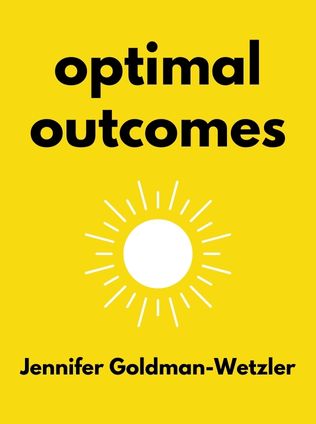
Optimal Outcomes
Free Yourself from Conflict at Work, at Home, and in Life
By Jennifer Goldman-Wetzler
Published 03/2020
About the Author
Jennifer Goldman-Wetzler, Ph.D., is the founding principal of Alignment Strategies Group, a consulting firm based in New York. She advises CEOs and their executive teams on optimizing organizational health and growth. For the past two decades, she has worked with senior leaders at startups, global corporations, and large nonprofit and governmental institutions, including Google, IBM, Oscar Health Insurance, Roche, the New School, the New York City Economic Development Corporation, and the United Nations. Additionally, she teaches conflict freedom at Columbia University.
Main Idea
The book "Optimal Outcomes: Free Yourself from Conflict at Work, at Home, and in Life" by Jennifer Goldman-Wetzler, Ph.D., presents a groundbreaking method for freeing oneself from conflict. Traditional approaches often emphasize collaboration, but when these methods fail, the Optimal Outcomes Method provides a new way forward. This method blends mindfulness, Jungian psychology, and practical, step-by-step advice to help people break free from seemingly impossible conflicts and achieve more satisfying outcomes than they initially imagined.
Table of Contents
- Understanding the Conflict Loop
- Breaking the Conflict Pattern
- Freeing Yourself from the Loop
Analyzing and Explaining Each Idea and Sub-Content
Understanding the Conflict Loop
Conflict is an inevitable part of life and can even be productive, leading to innovative solutions. However, conflicts that persist despite efforts to resolve them create what is known as a conflict loop. When we experience conflict, our thoughts, feelings, and actions tend to perpetuate the cycle, keeping us stuck.
"When we experience conflict with someone else, we tend to think, feel, and act in ways that cause more conflict, which leads to thoughts, feelings, and actions that cause more conflict, and so on." - Jennifer Goldman-Wetzler
The first step in breaking free from this loop is to understand the conflict habits that keep us stuck:
- Blame others: This habit often arises from a competitive spirit that warps into blaming and attacking others.
- Shut down: Avoiding conflict can be useful at times, but when taken to the extreme, it leads to prolonged, simmering conflicts.
- Shame yourself: Self-blame can distort into unnecessary guilt and prolonged conflict.
- Relentlessly collaborate: Over-collaboration can waste time and lead to ineffective solutions.
Breaking the Conflict Pattern
To break free from the conflict loop, the Optimal Outcomes Method provides several practices:
Practice 1: Notice Your Conflict Habits and Patterns
Recognizing your own conflict habits is the first step to changing them. Self-knowledge is power, and understanding your habits will help you choose to act differently.
Practice 2: Increase Clarity and Complexity: Map Out the Conflict
Mapping out the conflict helps broaden your perspective and understand the complex factors involved. This process is informed by the work of Dr. Peter T. Coleman and involves identifying all relevant people, places, events, ideas, and factors, and illustrating their connections.
Sign up for FREE and get access to 1,400+ books summaries.
You May Also Like
The Subtle Art of Not Giving a F*ck
A Counterintuitive Approach to Living a Good Life
By Mark MansonRich Dad Poor Dad
What the Rich Teach Their Kids About Money - That the Poor and Middle Class Do Not!
By Robert T. KiyosakiHow To Win Friends and Influence People
The All-Time Classic Manual Of People Skills
By Dale CarnegieFreakonomics
A Rogue Economist Explores the Hidden Side of Everything
By Steven D. Levitt and Stephen J. Dubner



















